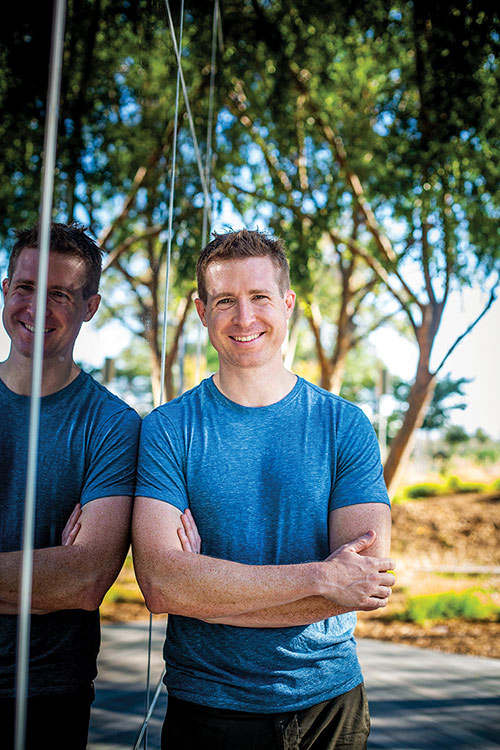
If Juston Payne ’02 feels pressure from leaders of one of the world’s most important tech companies, he’s not showing it.
“My job is to work with all the teams to design and build products that are successful for the company,” Payne, a senior product manager at Google, says before chuckling to himself. “So, if there’s one person whom our executives call to say, ‘Great job, it did all the stuff we wanted,’ or ‘This has left a huge smoking crater in the ground,’ [it’s me].”
For Payne, who was a psychology major, success includes his stewardship of Google Clips, a wireless, smart camera introduced in 2018. Built around machine learning, it’s a hands-free camera that users teach to recognize and then automatically capture pictures of people and pets they frequently photograph. Some reviewers didn’t like it. But for Payne, Google was not only happy with sales volume, but also with the technology it helped advance, including improved photography for smartphones.
Payne has also been tasked with looking for ways to advance the Google Pixel smartphone. “I work on the new capabilities that Pixels will have in the future,” Payne says. “It’s thinking, what are people trying to accomplish in their lives in certain areas, what do they want from their phones, and where is there a marriage between what Google can do in a phone and what people would love to get some help with?”
Keeping the Pixel’s new features confidential is important to Google. But Payne says his teams are working to improve the highly praised camera component and to upgrade “device sensing.” One example is the “Now Playing” feature, which ambiently listens for music playing and automatically identifies the song on the home screen.
Payne hopes to figure out how to keep advancing technology in a way that is empowering for people rather than addictive and disruptive.
He is acutely concerned with his own “digital well-being” and sets limits on the amount of time he personally spends with technology.
“I had this insight about myself that I was addicted to scrolling through Twitter,” he says. “I would do it without thinking and be surprised to find that my head was down and my posture was hunched.”
More generally, he started to feel strange about his phone becoming a place he would look to pass the time. “I got into this idea of making my phone a professional tool and not something that has extended its tentacles into all parts of my waking hours,” says Payne, who has two young children.
But devotion to making better products for better lives means he won’t stray too far from a screen. He notes, “I get most excited when things feel fairly squishy, fairly ambiguous and I need to stick my head in and figure out a sensible outcome.”
